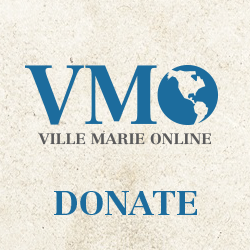
Honor Diaries
|
Honor Diaries is available through DVD, purchased at the film website, at a community screening (check your local paper) or with ITunes. |
 |
by Deborah Rankin
Keeping a diary is a time-honored pastime for many people who want to record the events of their daily lives. It’s a way to better remember the details of past experiences, as well as the thoughts and emotions that accompanied them.
Young girls have always confided their secret crushes to their diaries. Many writers and artists make use of diary writing as a way to chart the progress of their work and move forward creatively. A diary can also help busy professionals to maintain life-work balance. Diary writing is so entrenched in mainstream culture that keeping a food diary is now a component of many successful weight-loss programs.
In recent years diary writing has expanded to include ‘journaling’ in which writers explore ideas about the meaning of their lives, often unearthing buried feelings and gaining insights in the process.
Journal writing has become increasingly popular. Its therapeutic benefits are recognized by mental health professionals who often incorporate it into their practices. We are told by wellness gurus that by externalizing our struggles through our own words in a diary or journal, we become empowered to make changes in our lives.
In today’s context, we may associate diaries with grievance journals for minor complaints. Think of the Diary of Bridget Jones, a humorous chronicle of the foibles of dating and finding a mate in a romance-free world.
Saints and sinners alike have kept diaries throughout the ages. The Diary of Saint Maria Faustina Kowalska – Divine Mercy in My Soul, which guides readers on an intimate journey of prayer leading to God’s mercy, was written by a simple nun who lived and died in Poland before the outbreak of the second world war. (Sister Maria Faustina, born Helena Kowalska, was canonized on April 30, 2000 by St. Pope John Paul l l.)
At the other end of the spectrum is double-murderer James Monahan, who in more recent times wrote the prison diary A Life Inside under the pen name Erwin James for the Guardian. (The newspaper, which prides itself on being the guardian of media ethics, had some explaining to do to its readers when it was discovered that Monahan had lied about certain parts of his experience in order to camouflage his crimes.)
Pouring out one’s grief, angst, and rage in a diary has always been the recourse of loners, troubled souls, and the dispossessed - provided they were sufficiently literate to put pen to paper.
Not everyone is, of course. It is 2022 and we are well into the new millennium, but there are still millions of illiterate people all over the world, especially women and girls who are more likely to be deprived of education than their male counterparts. Millions more in technologically advanced societies are simply too afraid to voice their pain and confusion, much less do anything about it.
Into this void nine dedicated women activists - Muslim and non-Muslim - have come together to speak for women and girls who are victims of so-called “honor violence” in honor-based societies and cultures where women often pay dearly for any perceived dishonoring of their families.
Honor Diaries is at once a documentary film and a wake-up call to the sleeping elites in the Western hemisphere. It chronicles the daily violations of women’s rights in the Middle East, Africa, Europe, and the Far East, as well as the West, shining a light on horrific abuses such as honor killings, female genital mutilation (FGM), and forced and early marriages in every corner of the planet where these crimes are taking place. It takes the viewer on a journey with a group of courageous women as they work for justice, seeking to change attitudes, in their communities of origin and adopted countries.
Honor Diaries begins by exploring the systemic discrimination and oppression that many women and girls encounter daily around the globe. Lack of education, prohibitions against freedom of movement, cultural tolerance of domestic violence, rape, and physical abuse give rise to still worse and more terrifying infringements of basic human rights.
The film highlights many grim statistics: there are approximately 3,000 honor attacks in the UK every year and 5,000 reported honor killings worldwide every year; 6,000 girls and women are circumcised (FGM) every day; and more than 60 million girls worldwide are child brides.
The film is difficult to watch for, far more disturbing than any statistics that it brings to light, are video clips of an infant screaming as she is being circumcised; the haunting images of little girls with their “husbands”; a woman being beaten and dragged away by police; the tears of Jasvinder Sanghera (Founder of Karma Nirvana, a UK-based non-profit organization that helps individuals affected by honor-based violence and forced marriage) as she recalls how her sister took her own life by setting herself on fire, unable to endure the forced marriage that took her away from her family and friends when she was only 15 years old.
Honor Diaries premiered at the Chicago International Film Festival in October 2013 and won the Interfaith Award for Best Documentary at the St. Louis International Film Festival in November 2013. It was also featured from December 2013 through April 2022 on Direc TV’s Audience Network as part of the “Something to Talk About” film series. On International Women’s Day in 2022, it was released by the Clarion Project, which described it as “the first film to break the silence on honor violence.” Recently, it aired on The Source on Sun News Network, hosted by Ezra Levant.
The film is not without its detractors. Some Muslim and Arab rights groups say that it is anti-Muslim. Sanghera - one of the featured activists - is a Sikh woman of Indian origin from Britain.
Objections to the film may have something to do with the fact that its executive producer Raphael Shore produced Obsession: Radical Islam’s War Against the West, as well as other films that have been criticized for being Islamophobic.
One of the film’s producers and writers, Paula Kweskin, is an Israeli human rights attorney specializing in humanitarian law - her citizenship an automatic flashpoint for many Arab activists because of hostilities in the Middle East.
Ayaan Hirsi Ali, the film’s co-executive producer and featured interviewee has also been at the centre of controversy from the day that she escaped an arranged marriage and fled her native country of Somalia for the Netherlands where she was a member of the Dutch parliament from 2003-2006.
From the get-go she has been an outspoken defender of women’s rights in Islamic societies. Ali found herself in a firestorm after making the film Submission about the oppression of women in conservative Islamic cultures with Theo van Gogh in 2004.
After the film aired on Dutch television, van Gogh was assassinated by Islamic extremists. Ali subsequently left the Netherlands to set up residence in the US where she and her supporters established the AHA Foundation in 2007 to help protect and defend the rights of women in the West from oppression justified by religion and culture.
However, Raheel Raza, President of The Council for Muslims Facing Tomorrow and one of the most outspoken women activists featured in the film, said that while religion may serve as a pretext for violence towards women in Muslim-majority societies, Islam isn’t the source of the problem – rather, it is culture and honor-based beliefs.
If anyone should know it is Raza. She is the founder of Forum 4 Learning, which promotes learning in the fields of culture and religious diversity and has been a tireless worker for interfaith harmony. She is the first Muslim woman in Canada to lead mixed gender prayers and the author of Their Jihad … Not My Jihad, a book whose very title belies the fault-lines between the aspirations of moderate Muslims and supporters of political Islam.
There are also non-Muslims – including some feminists - on the other side of the divide who agree that the film portrays gendered violence as rooted in Islam and endemic to Islamic culture. They say that rather than breaking the silence on violence against Muslim women and girls, it does them a disservice by erasing specificities of time and place, reinforcing stereotypes in the process.
Monica Marks of Oxford University observes: “Asking why ‘Islamic culture’ oppresses women is as meaningless as asking why ‘Christian culture’ oppresses women. Women’s lived realities differ in Christian-majority countries depending on the historical and socio-political contexts in which they live. What oppresses a woman in America differs from what oppresses her sisters in South Korea, Bolivia, Greece, Australia, or Zimbabwe.”
In this view, the global trafficking of women and girls in Eastern Europe, the murder and abductions of missing aboriginal women in Canada, the sexual exploits of Silvio Berlusconi, gang-rapes in France, rape chants on campuses in North America, the forced sterilization of Roma women – indeed all the multiple forms of abuse of women and girls that occur in the West - are ‘morally equivalent’ to honor-based violence in non-Western societies.
All the same, there are real differences between the legal systems of Western democracies and the laws of many Muslim-majority countries. Violence towards women and girls (and boys) may be prevalent in the West, but the state doesn't sanction it.
By the same token, Judeo-Christian ethics isn't associated with honor codes. The Christian and Jewish faiths emphasize personal morality and social justice rather than cultural controls.
Another significant difference is that violence towards women and children in the West is rooted in sexual and personal license rather than family control to enforce virginity or compliance with social norms.
Juliana Taimoorazy, a Christian women’s advocate profiled in Honor Diaries and Founder of the Iraqi Christian Relief Council disagrees with the politically expedient view that there are no cultural differences influencing gendered violence. She says that honor-based violence towards women and girls is not found among Christian groups in Muslim-majority countries although they are surrounded by it.
One thing is for sure: Honor Diaries is a window on the daily injustices that too many women experience around the world, whether the roots of "honor-violence" lie with religion or are simply embedded in cultural practices.
In the words of one reviewer: "More than a movie, Honor Diaries is a movement meant to inspire viewers to learn more about issues facing women in Muslim-majority societies and to act for change."
For Information About Screenings and DVD's click here.
Last Night at the Gayete

|
|
|
|
|
|
The Centaur Theatre's - season is drawing to a close with its final production of Last Night at the Gayety, a musical comedy by Bowser & Blue which runs until May 22nd. |
|
|


